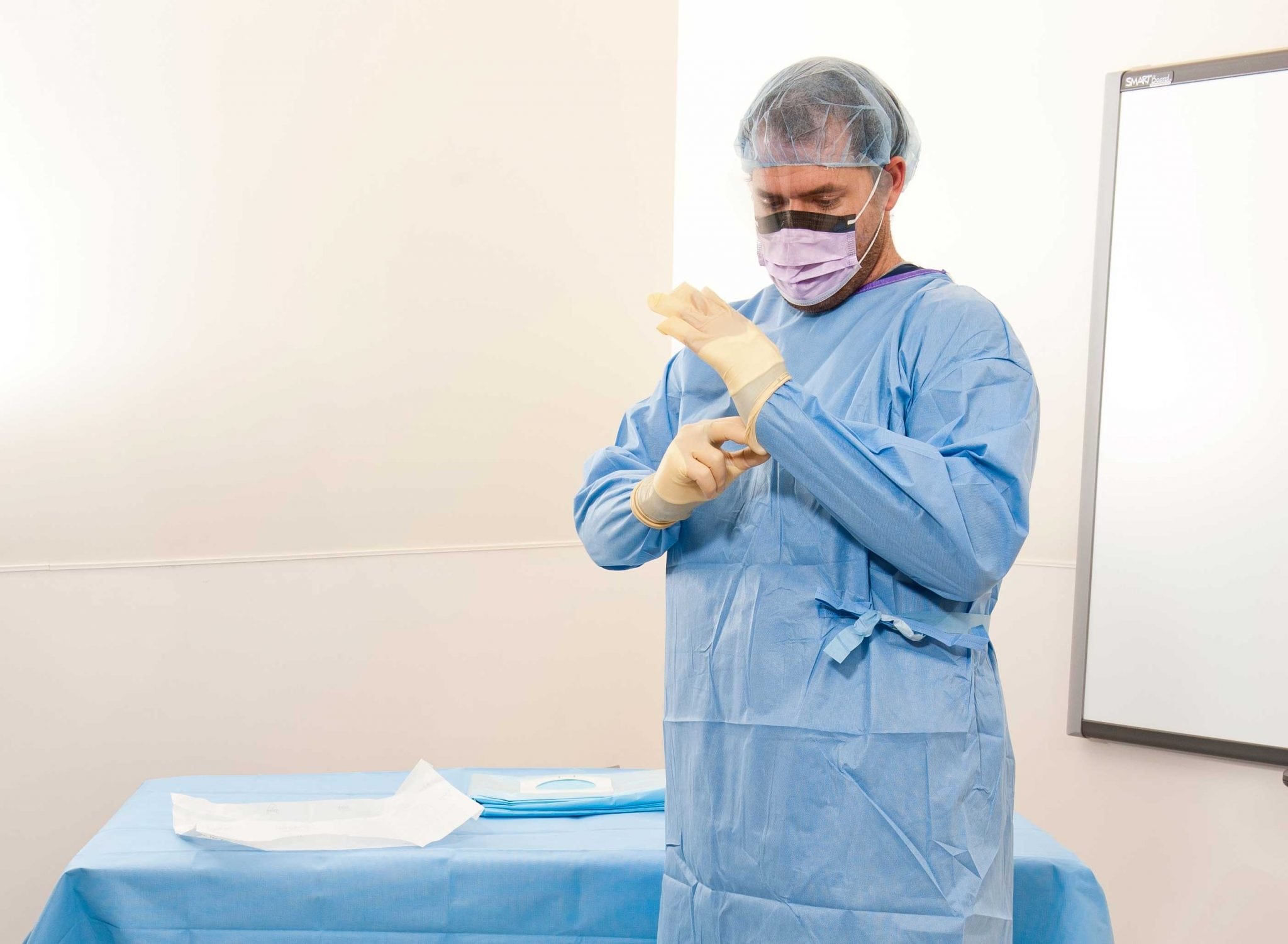Infection control is a bedrock of patient care. The thorough washing of hands, and the wearing gloves, masks and gowns are important infection control steps that every clinician learns early – and does often throughout – his or her career.
The practice of universal infection control begins in training, even in settings where real patients may not even be present. Effective use of universal precautions create a safer environment for both providers and patients.
The Hartford HealthCare Center for Education, Simulation and Innovation (CESI) is a non-clinical teaching center that focuses on infection control training for all it’s trainees.
“The proper use of personal protective equipment, including gloves is among the many areas of training within CESI,” said Dr. Thomas Nowicki, CESI’s Director of Medical Education. “At CESI, we even monitor hand washing in and out of simulated clinical rooms to reinforce good practice.”
“While there are no live patients in CESI, the proper use of gloves (by trainees) is highly recommended,” he added.
When trainees are performing complete and full procedures – and particularly during testing on those procedures – they are required to wear gloves and other universal protection.
“This is an important safety measure,” said Dr. Nowicki. “It is a habit best formed early in one’s career.”
Learn more about CESI and its training options here.

